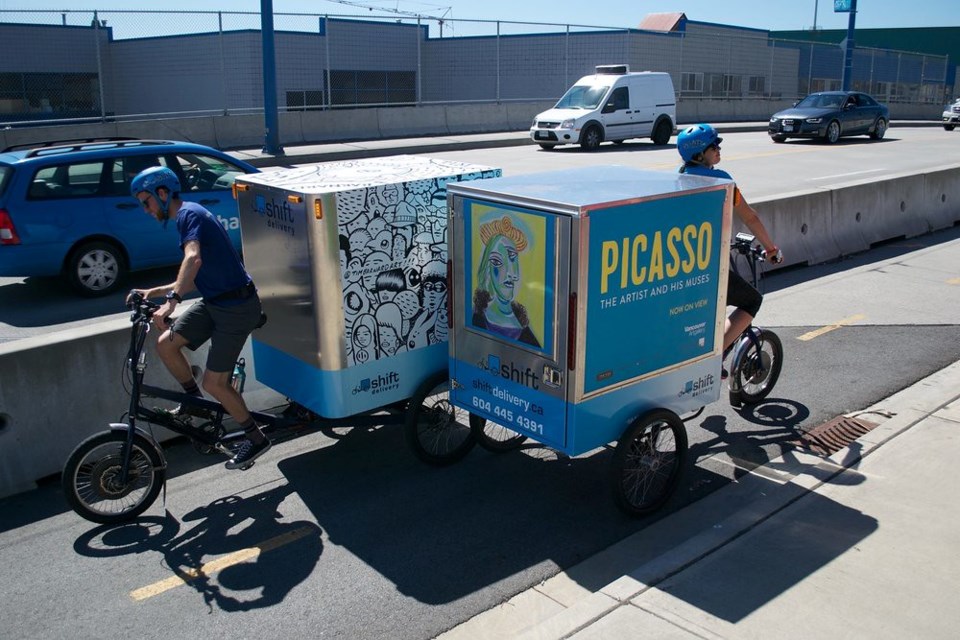In an effort to reduce traffic congestion and air pollution in Vancouver, the provincial government has partnered with the city to create a system for “last-mile delivery” of cargo by use of e-bikes.
With the coronavirus (COVID-19) pandemic making online shopping a much more common way of purchasing goods, the delivery of those products has increased the number of delivery trucks on B.C.’s roads. To that end, the partnership between the B.C. government and the City of Vancouver will see the creation of a cargo e-bike micro hub -- a delivery facility where packages can be transferred from trucks, stored and then delivered by cargo e-bike to the final delivery point.
'Efficient last-mile delivery'
The City of Vancouver-led, provincially funded project for a shared micro hub will begin in June 2021 and run for 14 months. A project evaluation in spring 2022 will focus on productivity, capacity, cost, incidents and greenhouse gas emission reductions achieved.
“Investing in green transportation is an important part of our CleanBC plan, and a necessity to tackle climate change and reduce greenhouse gas emissions,” Rob Fleming, Minister of Transportation and Infrastructure said in a recent release. “This project will support efficient last-mile delivery that does not add congestion, noise or air pollution to Vancouver’s busy downtown core.”
As for the electric bikes themselves, George Heyman, Minister of Environment and Climate Change Strategy says they are becoming an affordable option thanks to the government’s CleanBC plan.
“Through significant rebates and by removing the PST on electric bikes, we’re helping businesses choose zero-carbon options for the last mile of delivery. This new collaboration will provide important information to help reduce climate and air pollution.”
Potential to replace vans/trucks in urban delivery
Kennedy Stewart, mayor of Vancouver says sustainable delivery services are vital to creating a liveable city and vibrant economy.
“Cargo bikes have the potential to replace vans or trucks for many types of urban deliveries. The city is excited to partner with the Province and to work with businesses to encourage more emission-free last-mile deliveries,” he said.
The B.C. government is providing $200,000 in funding. The City of Vancouver will provide in-kind support of one full-time employee to manage the project, including coordination and outreach to businesses.
Improved road safety
The ministry grant will contribute funding for coordination, building rental and maintenance, data collection and analysis. Results will be used to develop a business case to assess the value of supporting future micro-hub projects.
The release goes on to state a number of other benefits a successful cargo e-bike micro hub could bring. These include:
- Addressing issues such as double-parking, circling to find loading/parking and related congestion.
- Improved road safety from having fewer larger vehicles.
- More efficient use of road space, enabling reallocation to walking/cycling/public space in the longer term.
- Reductions in black carbon and other air and waterway pollutants from tires.
For more information about CleanBC, British Columbia’s climate action plan you can check out its designated webpage.


